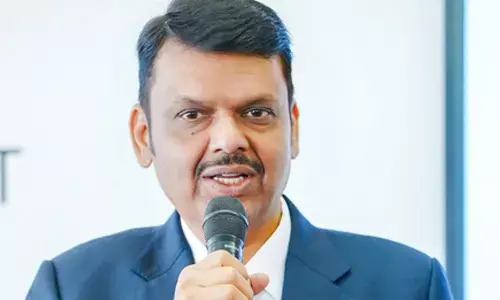Career options in music industry for aspiring professionals

As the world becomes more interconnected and media-driven, the music industry continues to flourish with new and exciting opportunities
As the world becomes more interconnected and media-driven, the music industry continues to flourish with new and exciting opportunities. For high school graduates in India, the prospect of pursuing a music career can be both exhilarating and daunting. The traditional notion of music careers often revolves around singing or playing instruments, but the contemporary landscape offers a plethora of diverse roles that leverage music in innovative ways.
Today, the music industry in India offers a wide array of career options for aspiring professionals. Whether one is passionate about performing, creating, teaching, managing, or innovating, there is a place in this vibrant field. The key to success is to identify strengths and interests, pursue relevant education and training, and remain adaptable to the ever-evolving landscape of the industry. For high school graduates considering a music career, the opportunities are vast and varied. From traditional roles like singers and musicians to emerging fields like music therapy and virtual reality sound design, the industry is ripe with potential.
Performing artists, singers and musicians form the heart of the music industry. They perform in various settings such as concerts, festivals, studios, and even social media platforms. With the rise of digital streaming services like Spotify and Apple Music, independent artists can now reach a global audience without the need for a record label. DJs and electronic music producers are in high demand in India’s thriving nightlife and event scene. They create and mix music for clubs, festivals, weddings, and corporate events. This career requires a deep understanding of music software and equipment, as well as a keen sense of audience preferences.
They work closely with artists and sound engineers to oversee the production process, from composing and arranging to mixing and mastering. Renowned Indian producers like A.R. Rahman have gained international acclaim for their work, showcasing the potential of this career. Sound engineers are responsible for recording, mixing, and mastering tracks to ensure high-quality sound. They work in studios, live venues, and for broadcasting companies. Proficiency in audio equipment and software is essential, and specialized training can be obtained through various audio engineering courses available in India.
Composers and songwriters create original music and lyrics for artists, films, television, advertisements, and video games. Bollywood offers substantial opportunities for talented composers as well.
This role often involves working closely with composers, producers, and musicians to create the desired sound. Arrangers must have a strong understanding of music theory and instrumentation. Music programmers use software to create and arrange digital music. They often collaborate with composers and producers to incorporate electronic elements into tracks. This role is increasingly important in modern music production, where digital soundscapes are prevalent.
Teaching is another rewarding career path for those who are passionate about teaching. Music teachers can work in universities, schools, colleges, and music academies, or offer private lessons. With a higher degree, one can also become a professor, contributing to academic research in musicology and ethnomusicology.
This career requires specialized training and certification, often involving a combination of music and psychology courses. Music therapy combines music with healthcare to improve patients’ well-being. Music therapists use music interventions to help patients achieve therapeutic goals, such as reducing stress or improving communication. This interdisciplinary field requires knowledge of music and psychology.
Managing music artists, brand labels and their businesses is another big idea. Artist managers handle the business aspects of an artist’s career, including contracts, promotions, and tour arrangements. They act as a liaison between the artist and other industry professionals, helping to navigate the complexities of the music business. Music promoters are responsible for publicizing and organizing events such as concerts and festivals. They work with venues, artists, and media to ensure successful performances. This role requires strong organizational and networking skills. Music journalists and critics write about music for newspapers, magazines, websites, and blogs. They review albums, concerts, and trends, providing insights and opinions that influence public perception. This career requires strong writing skills and a deep understanding of music. Radio and TV hosts present music programs, interview artists, and provide commentary on the latest in the music world. They need excellent communication skills and a charismatic personality to engage with audiences. Music video directors create visual representations of songs, working closely with artists to bring their vision to life.
This role involves a combination of creative and technical skills, including storyboarding, filming, and editing.
Lately, the rise of streaming services has revolutionized the music industry. Professionals are needed to manage digital content, analyze streaming data, and develop strategies to maximize revenue from digital platforms.
This sector offers opportunities for those with a knack for technology and data analysis. Sync licensing involves placing music in films, TV shows, commercials, and video games.
Integrating music with virtual reality (VR) and augmented reality (AR) is an exciting frontier.
VR and AR experiences require immersive soundscapes, creating opportunities for audio engineers, composers, and sound designers. This interdisciplinary field combines music, technology, and creative storytelling.
(The author is VC, World University of Design (WUD), Sonipat)








